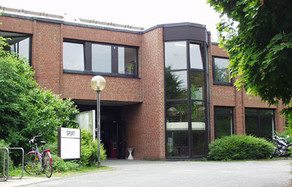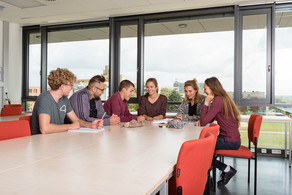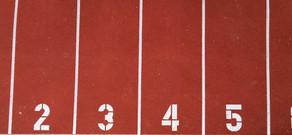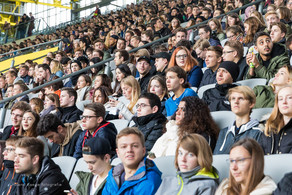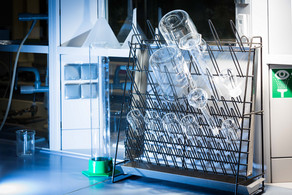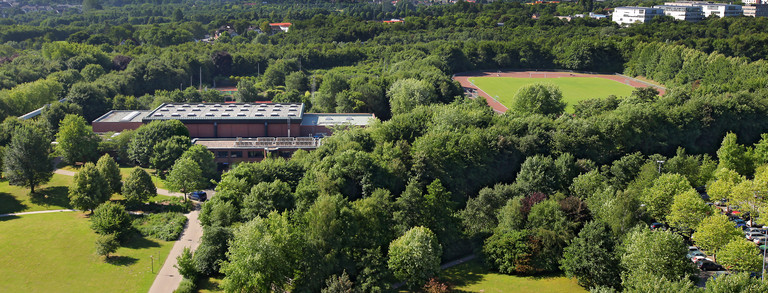Research
Research
The research focus in the area of development and learning is on behavior and experience in the context of sports activity (especially in school and extracurricular youth sports), which needs to be described, explained, predicted as well as influenced, using qualitative, quantitative as well as experimental research methodology.
Main research interests:
- On the effectiveness of the application of psychoregulatory methods in sports
- Modification of teaching behavior of prospective physical education teachers
- Teacher-student interaction and interpersonal perception in physical education
- How students experience physical education
Research
Funding body: Federal Ministry for Family Affairs, Senior Citizens, Women and Youth | Funding reference: ZMl7/2523XXX046 (Funding amount 2023 and 2024: € 450,000, of which € 185,000 PI)
PI: Prof. Dr. Dennis Dreiskämper
As part of the Move For Health project of the German Sports Youth in the DOSB (dsj), funded by the Future Package, a total of €450,000 was made available for the science module for the years 2023 and 2024 for accompanying scientific research. Under the project management of Prof. Dr. Dennis Dreiskämper, a joint project consisting of a total of five sub-projects (seven partners, six universities) was designed, which deals with the following topics
- Psycho-social health of children and young people and the potential of exercise, play and sport
- The sports club as an attractive living environment for children and young people growing up
- Socially disadvantaged and non-sporting groups: Challenges and conditions for success in sport
The three subject areas will be examined both quantitatively (in the form of a representative Germany-wide survey) and qualitatively (through in-depth studies in specific areas). The content and results will be linked and interlinked in the form of collaborative research using mixed-method approaches. This means that all three topics are covered methodically identically in the panel and taken up in the in-depth studies. The first survey took place in July and August 2023 in over 4,000 households, with parents of 2,112 children between the ages of 5 and 12, parents of 1,978 young people aged 13 to 17 and the young people themselves being surveyed. In 2024, a longitudinal section (including growth) was carried out. In addition to the existing questions, the area of democracy promotion and attitudes was added as a further variable.
Funded by: German Research Foundation (DFG)
PI: Dr. Dennis Krämer (University of Münster)
The aim of this project is to establish an interdisciplinary research network on health, technology, resilience and crises between Germany and Japan. Prof. Dr. Dennis Dreiskämper is a member of this research network. Further information can be found here: https://www.resilient-healthcare.de
Funded by: Erasmus+ (EU)
PI: Prof. Dr. Ian Boardley, Prof. Andreá Petroczi, Prof. Susan Backhouse
The aim of this project is to establish an interdisciplinary research network to improve communication between athletes, elite sport and research. Further information can be found here: https://www.cleansportalliance.org/
The keyword "Growing up healthy in childhood" covers various AB priority research projects, including the following
- Healthy children in healthy communities (funded by the EU Interreg V - VII; 2011-2021, daily exercise times for more than 3,000 children in elementary school and daycare centers in NRW, the Netherlands, Poland and Brandenburg)
- Gesunde Kommune Altenberge (since 2016, motor skills testing in elementary school, teacher and parent training)
- DRAGO's jungle adventure: comprehensive survey of the motor skills of third-graders in a district in Lower Saxony
- Sportlichter (funded by the DSEE; development of support and challenge programs and their evaluation in all-day elementary school)
Development of measurement instruments for physical self-concept in childhood (to the homepage with inventories and materials here (link follows))
Investigation of the influence of physical self-concept on motivation and sports behavior
Sensitization of teachers and coaches for the topic of self-perception of children and adolescents
Theory development on the development and significance of the self-concept across the lifespan
Research proposals are currently in preparation; inquiries for BA and MA theses on this topic are expressly welcome.
Effort is a key factor influencing performance. The question of how to achieve
performance is complex and requires a clear understanding of the performance parameters.
Effort is considered an important factor for athletic performance, especially in goal-oriented
processes. Despite the prevalence of the concept in research and practice, the term
is rarely clearly defined and operationalized, although the number of articles about it is steadily
increasing.
Hannah Pauly and Dennis Dreiskämper, together with Svenja Anna Wolf (Florida
State University, USA) and Bernd Strauss (University of Münster), are researching how effort
can be defined and measured in this area. Based on this, we are experimentally investigating
the extent to which the integration of effort into the Theory of Challenge and Threat States
(TCTSA) can better explain performance. In addition, further underlying
mechanisms that influence effort and in turn performance will be investigated.
The understanding of making similar decisions and actions within a team,
is relevant for team performance. Shared Mental Models (SMMs)
are knowledge representations of individual team members that are shared at team level and
supplemented. In team sports, they help the individual team members
to coordinate with each other. In recent years, more and more
authors have been working on SMMs, but the empirical findings in sport have been very different.
Dr. Charlotte Behlau's doctoral thesis therefore focused on developing suitable
measurement methods in order to contribute to the further development of team research
.
These team decisions and other group dynamics (such as
team confidence or collective efficacy) play a relevant role in team performance, both in
traditional and esports.
Esports has become increasingly popular in recent years and is estimated to increase further
to 640 million viewers by 2025 (Statista, 2025). The International
Olympic Committee became aware of this back in 2018 and set up a working group
to look at the differences and similarities between the traditional sport
and esports. Similarly, an academic discussion has arisen among
sports scientists about the extent to which esports can now be seen as a sport.
We have published a position paper on this in the German Journal of Sport Science together with
colleagues, and the discussion has also been approached on the basis of data, with
the result that the team dynamics of esports and traditional team sports
are similar.
Follows



